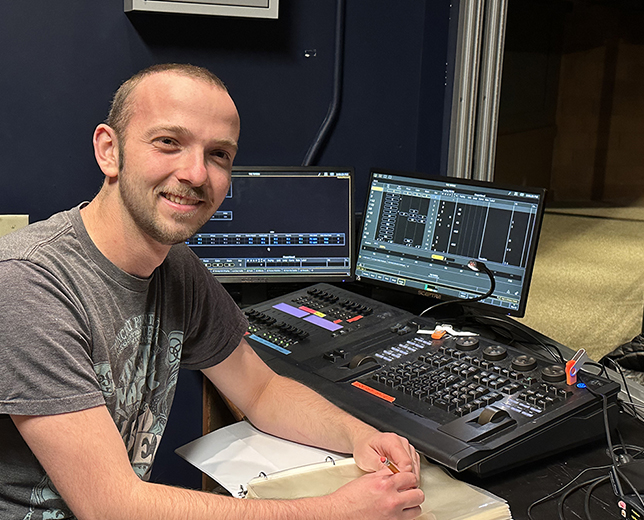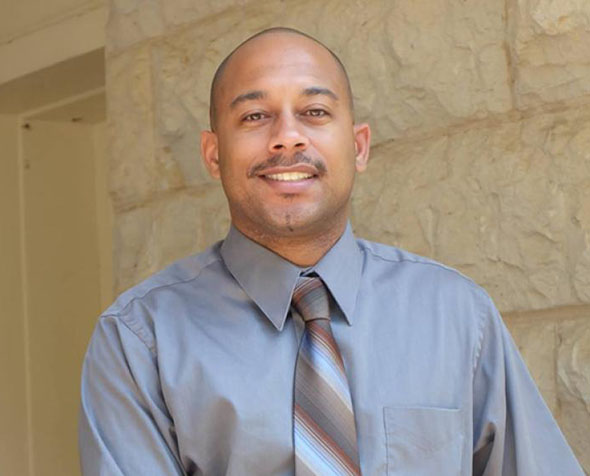MFJS Welcomes Longtime Director Peter Lauer as First-Ever Wolzien Visiting Professor

Peter Lauer’s 40-year career as a director of television and streaming video began unexpectedly with his first job working for MTV in the 1980s. “I didn’t know what a director did, and I had no one to show me,” he said. “If you had an idea, they would send you off into the streets of New York to go shoot stuff.”
The position soon segued into an opportunity to direct a pilot for HBO even though “I didn’t go to film school and didn’t really have the skills necessary,” Lauer said. The experience launched a lifelong quest to learn more about his craft and develop and refine a method that works.
Lauer is currently serving as the first-ever “Wolzien Visiting Professor of the Practice,” teaching as a member of the Media, Film & Journalism Studies (MFJS) faculty for both winter and spring quarters.
He will also speak at two Wolzien lectures — the first of which will entail leading a panel discussion on “Diversity In-Front-Of and Behind the Camera.” The talk will be held Feb. 8, 5:30-8 p.m. in Margery Reed Hall, Room 113, Reiman Theater. The panel will be moderated by MFJS Chair and Associate Professor Derigan Silver and will include Department of Theatre Professor Anne Penner and MFJS Associate Professor Lauren DeCarvalho. A Q & A with the audience will follow.
“The whole challenge of DEI in Hollywood and every industry really is how do we create a more equal playing field while promoting fair competition,” Lauer said.
Lauer’s position as Wolzien Visiting Professor of the Practice was funded by a generous $500,000 gift from DU Alumni Tom and Valerie Wolzien. The gift will also allow the department to bring on a different visiting professor each year for the next four years.
“DU was instrumental in our futures a half century ago, and now we want to do what we can to be instrumental for DU’s next half century,” Tom Wolzien said.
Silver expressed “deep gratitude to Tom and Valerie for establishing this fund. Their leadership will impact so many students over the next five years.”
He added that “having Peter on campus this quarter has already proved to be an outstanding opportunity for our students to learn from a leader in the industry. His professional experience as a director is exceptional. I look forward to having future visiting professors of the practice in journalism, health communication, strategic communication and other fields lend their expertise to the DU community.”
Lauer has directed episodes of “Emily in Paris,” “Uncoupled,” “Arrested Development,” “Malcolm in the Middle,” “Pushing Daises,” “Chuck,” “The Gilmore Girls” and “Awkward,” among other TV shows. He has previously taught at the University of Arizona and UCLA Extension.
In MFJS Lauer is currently teaching “Directing Film and Television” this quarter, and “Story and Visual Design” and “Satire and Politics in Television and Film” in the spring. Lauer’s current class provides students with an overview of what a director does with a focus on three crucial elements — story, performance and design.
In terms of story “the most important skill a director must have is script analysis,” he said. “We’re spending lots of time nailing down what that means because script analysis informs every creative conversation a director has all the way through postproduction and promoting a film.”
The performance component will look at the crucial role of casting and character descriptions while the design component determines what goes on the screen, “what you shoot and how you shoot it or what we’re showing and how we show it.”
In the spring, Lauer’s Story and Visual Design course will delve deeper into the subject of design. “I hope students will then take the spring course which breaks down the process of what goes on the screen and makes the material tangible through students teaming up to direct and film a project,” Lauer said.
In his spring quarter class on Satire and Politics in Television and Film, Lauer will address such issues as satire and race. “I’m excited about that,” he said. “In fraught, contentious times like the ones we’re living in, satire can play a very important role.”
Lauer hopes to share through his classes “a kind of method I’ve developed to demystify what it means to be a director and provide a clear pathway for how to do it that builds confidence and engages people’s unique creativity,” he said.
He added that he considers himself lucky “to have worked with fabulous cinematographers and wonderful writers, comedians and actors, to learn from these people and learn from my own mistakes. I want students to come out of these classes chomping at the bit to go shoot their next thing.”
Find more information about the Wolzien Lecture with Peter Lauer on “Diversity In-Front-Of and Behind the Camera” here.






